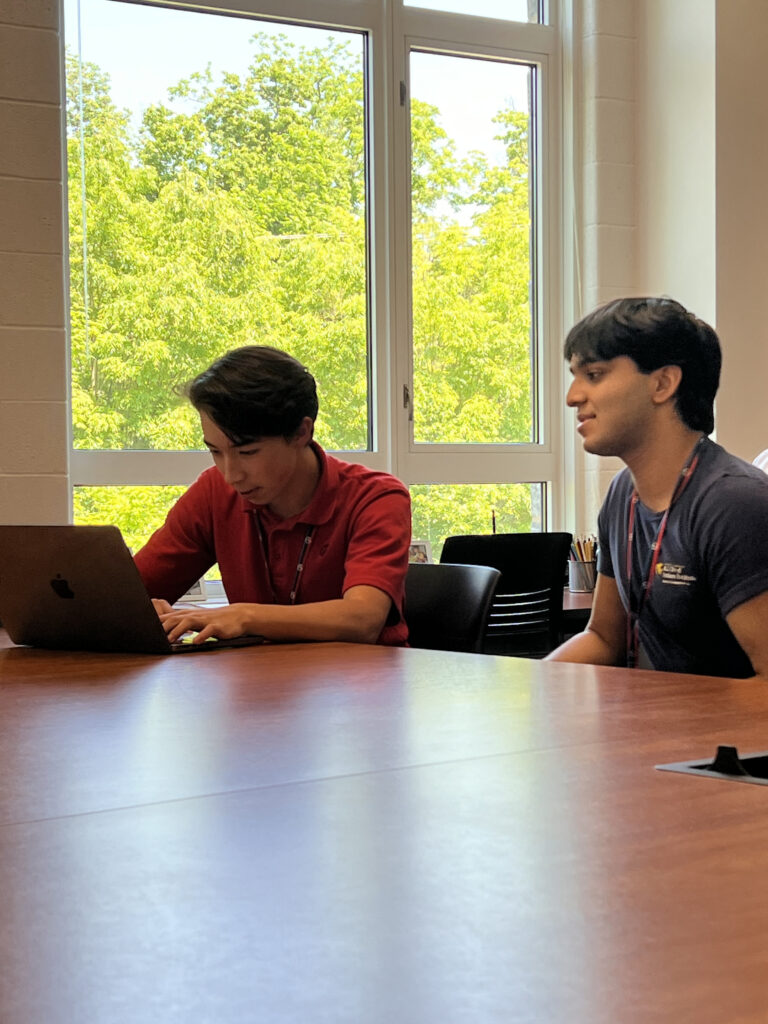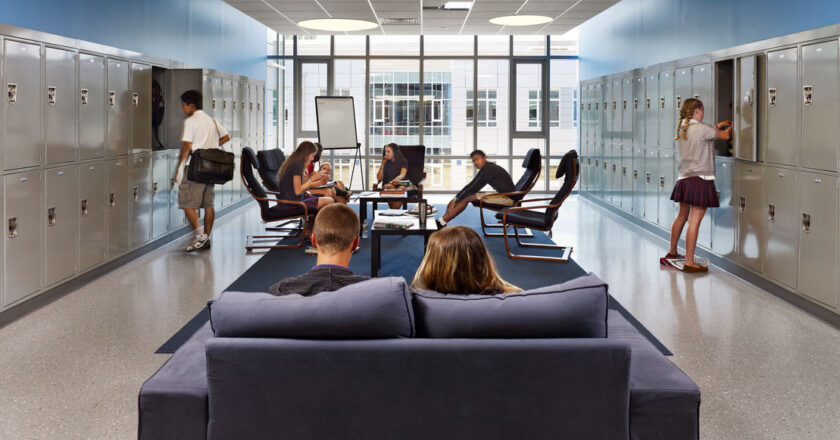‘What conversations do students have in the hallway?’
As I walked down the bustling hallways to my Period F class, I skimmed the lines of an Op-Ed article from the latest copy of The Edition. The piece’s riveting headline about Upper School culture felt like it was a statement pulled straight from my own thoughts.
I had voiced similar thoughts about the topic with my friends; now, seeing those remarks materialized into an enthralling Op-Ed, or Opinions piece by former Editor-in-Chief Angie Wang ‘24 caught me, a casual reader, off-guard. The public voicing of my opinions in such a clear and poised stance helped affirm my student experience. This became the conversation I had in the hallways.
The Edition, our school newspaper, is a microcosm of the Upper School, reflecting the hardships, triumphs and cultural dynamics that make up the student experience. Delivering timely facts and opinions on what’s happening around us, it complements traditional teacher-facilitated platforms–house memos, assemblies, formal blue-border-framed emails–turning monologue into dialogue.
“There’s lots that’s going on in the school that’s more than just that 10-second shout out at morning meetings,” US English Teacher Daniel Keefe said. “I’m totally narrative-driven, so I love to listen to other people’s stories. That’s one of the strengths of the newspaper–a real story of what’s happening.”
Joining The Edition isn’t about being a critically acclaimed, expert-in-the-field writer; “We’re not the New York Times,” is a common quip used during the newspaper’s staff-training sessions. We’re all still students, working an eight-to-three plus extracurriculars and homework. In fact, it’s the one thing I’m sure we all have in common, among our diverse backgrounds.
Whether you’re passionate about an extremely niche topic or just have a story to tell, writing for the newspaper is a way to share your experiences and shed light on topics in a way no other writer – whether they are hundreds-of-times-published or completely new – can. The more students who write, the more rich and diverse the narrative.
Our conversations are often trapped in social media’s algorithmically-curated echo chambers and picture carousels. Newspaper stories open the dialogue, drawing in diverse perspectives of a whole community to better understand each other and collectively identify issues.
“A lot of times in school communities, there isn’t always an open space for us to discuss conversations students have in the hallways,” said Mr. Keefe. “It’s eye opening for us as faculty to find out this has been a really big issue that we got to think about, or for students to recognize. Newspapers often provide a space for debate and different perspectives–I think that is vital and necessary.”

Writing has the power to hold others accountable. Student journalism amplifies writers’ voices, giving them agency in their education and allowing them to take control of their learning. By providing a platform for incisive commentary, school newspapers can take a more critical angle, delving into core issues affecting their student experience.
On the other hand, student journalism can bridge the disconnect students, faculty and administration face in their day-to-day experiences. Articles infused with a myriad of interview perspectives can profile, inform and demystify roles, decisions and intentions behind processes that impact students.
In this way, writing fosters a transparent and informed school community. Learning self-advocacy, integrity and an accountability for that voice are critical lifelong skills. These abilities are essential to navigate broader global issues we’ll face beyond our time here.
You can engage with The Edition in many ways, digital or print, by simply picking up a copy, being featured in an article, setting aside some time to go cover-to-cover or contributing your perspectives as a staff writer.
Through the school newspaper, conversations that start in the hallways between bells have the potential to transform into real discussions, contributing to our shared experience in the Upper School.

